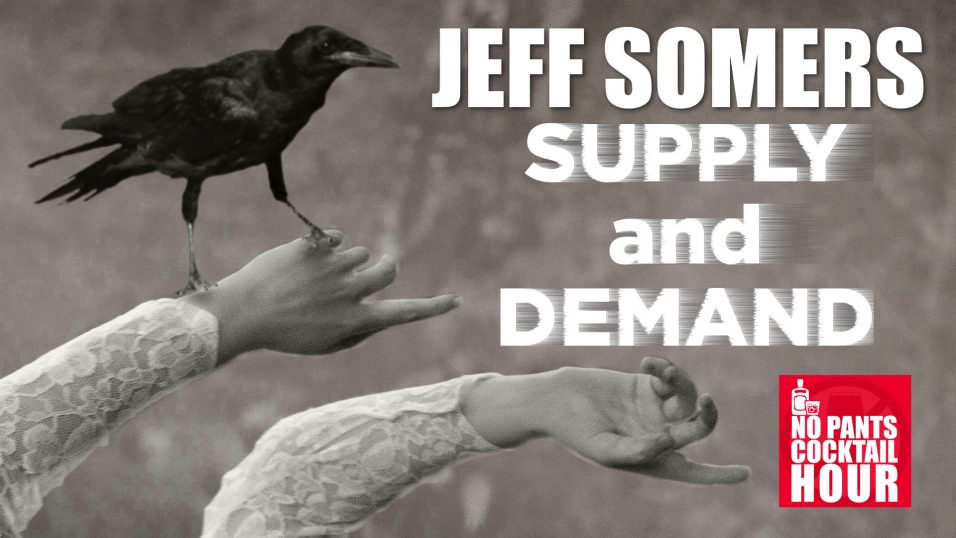I just posted the newest episode of my wee little podcast, The No Pants Cocktail Hour. This one focuses on a story I published a few years ago called “Supply and Demand,” which appeared in the anthology No Bars and a Dead Battery, which collected the winning entries to the Owl Canyon Press Hackathon. As I explain in the podcast, part of what attracted me to that contest was the constraint of the rules: They gave you the first and last paragraphs and you had to fill in the middle following specific guidelines.
As I blathered on about this story for the podcast, I was reminded about the importance of experimentation. My own work is not very experimental; aside from a feint here and there, my work is pretty straightforward. But that’s my published work. In my private noodling I think it’s important to experiment a lot, even if you know most of that work will never see the light of day.
That’s one reason why I think writing just for yourself is important. You need a place where you can get weird and try shit. A place, most importantly, where you can fail. That’s why I write a short story every month in a notebook, by hand: Most of those stories never get out of that book, which means y’all will never know about that time I tried to write an entire story in haiku1.
Now, if the haiku story had been successful, you can be damn sure you’d know about it. But it’s safely hidden away, which allows me to keep experimenting and failing in ridiculous ways, which in turn hes me refine what my style actually is, because I know from failed experiments what it’s not.
A willingness to experiment is crucial to keep stretching your own boundaries. I don’t write in the same way I did 10 years ago — I’ve learned a few tricks, largely from experiments that went horribly wrong. Besides, if you can’t take chances in your private writing that no one will see unless you show them, when can you take chances?
It’s In the Way That You Use It
It’s important to note that not all experiments are going to be flashy. It’s not always ‘let’s see if I can write a murder mystery from the point of view of a pet parrot in a cage’ or ‘let’s see what happens if I tell the story from five distinct viewpoints but obscure that from the reader.’ What is or isn’t experimental is a very personal matter for a writer.
For example, if you spent your wild youth fearlessly playing with POV and timelines, crafting complex narratives that required several readings just to comprehend, maybe writing a straightforward story with no narrative tricks is your experiment. Or if you’ve always written science fiction, maybe just writing a non-speculative story is your experiment. When I was a teenager, I wrote almost exclusively sci-fi and fantasy, so when I sat down at the age of ~20 to write a story that had zero speculative elements, it was experimental writing for me — although you’d never know it from the result2.
Bottom line: Don’t be afraid to experiment. In fact, don’t just not be afraid — push yourself to experiment. For example, right now I’m going to go try some whiskey I’ve never had before. I’m the hero here, is what I’m saying.
- At least if my will is honored and everything is buried with me, including my whiskey collection, that is.
- That novella ended with the main character, Kincaid, offering a lengthy soliloquy about life as he saw it, which prompted my brother to sarcastically call it “Lord Kincaid’s Farewell Address.” To show Yan who’s boss, I changed the title of that final chapter to that. JEFF WINS, even when he loses.

